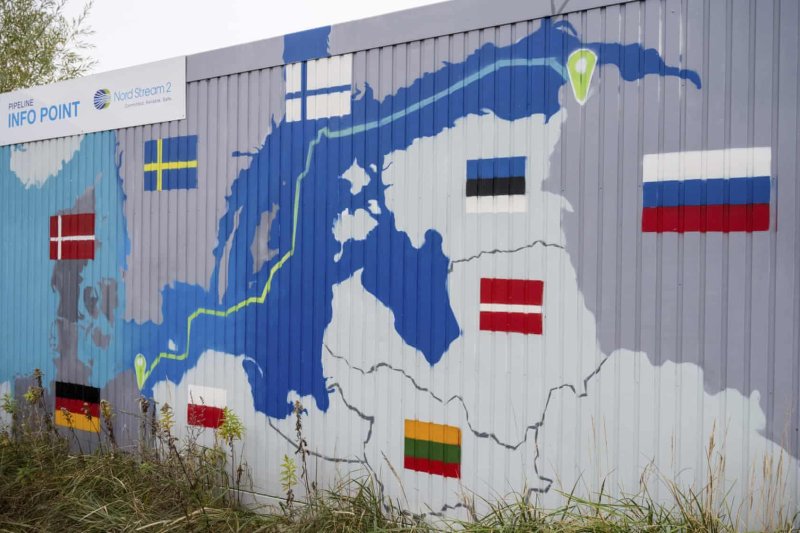German Chancellor Won't Certify Key Russian Gas Pipeline as Situation 'Fundamentally Changed'
Nord Stream 2, the 750-mile pipeline connecting Russia and Germany, has been completed but has not yet certified by Germany’s energy regulator. These words, via my colleague Philip Oltermann, suggest the German chancellor, Olaf Scholz, has decided to pull the plug on the pipeline because of the Ukraine crisis.
The saga of Nord Stream 2, the gas pipeline between Russia and Germany running along the Baltic seabed, has been stuck so long it has been likened to a suitcase at an airport without a handle – impossible to abandon, and impossible to carry forward. Most of the original cast of characters – Jean-Claude Juncker, Angela Merkel, Matteo Renzi, David Cameron, Petro Poroshenko – have left the political stage. Only one politician has survived the entire story: Vladimir Putin, the Russian President, and the master of divide and rule.
First announced in 2015, the $11bn (£8.3bn) pipeline owned by Russia’s state-backed energy giant Gazprom has been built to carry gas from western Siberia, doubling the existing capacity of the Nord Stream 1 pipeline and keeping 26m German homes warm at an affordable price.
But the one thing this pipeline is not, as lamely claimed by the former German chancellor Merkel, is a purely commercial project. It has vast geostrategic consequence, with every inch of pipe a pitched political and legal battle.
Indeed few engineering projects have thrown up so many issues: the restoration of the post-Soviet empire, the climate crisis, American bullying of Europe, Germany’s emotional embrace of Russia, the legal powers of the European Commission, corporate lobbying, energy forecasting, and Gazprom’s monopolistic model. Its fiercest critics have described it as a modern day betrayal on the scale of the Molotov-Ribbentrop pact of 1939.
By handing Putin such potential leverage over European energy security, it is argued, the 1,200 km pipeline leaves Free Europe at his mercy. If Putin wants a new Yalta, a new border settlement with Europe, then gas, and Europe’s dependence on Russian reserves, has become a means to achieve it. Nord Stream 2’s critics say it isn’t so much about creating additional capacity as it is about supplanting the main existing path for Russian gas to Europe, which runs through Ukraine.
Others say this is hyperbole, and Russia would find that if it used gas as a geopolitical weapon that Europe has many alternative sources.
(Source: The Guardian)













